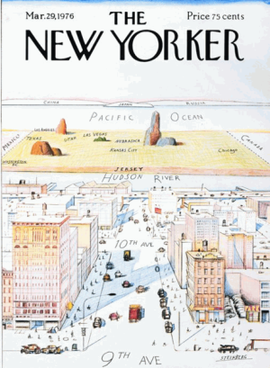[BBC] A recent study has likened city air pollution to smoking a pack of cigarettes each day for 29 years. While the effect on our lungs is undoubtedly troubling, we should also be wary of what the air we breathe is doing to the rest of our bodies.
The World Health Organization (WHO) now calls urban pollution levels a "public health emergency" because 91% of us live in areas where air pollution exceeds the agency’s guidelines. Right now, 55% of the world’s population lives in urban areas. That figure is expected to rise to 68% by 2050, the United Nations estimates. If urban life is a serious concern for our health, mental wellbeing and outlook, then it is only going to become a greater issue for more of us as time passes.
Mental wellbeing
Prevalence of psychiatric disorders is significantly higher among people living in urban areas, says a meta-analysis of 20 pieces of research conducted over the past 35 years. Specifically, people in cities suffer from mood disorders and anxiety at a disproportionately high rate.
Compare this to residents who have a sea view ‐ for every 10% increase in the amount of ocean people can see, people’s scores on the Kessler Psychological Distress Scale decreased by one-third of a point. The researchers suggest that "a 20 to 30% increase in blue space visibility could shift someone from moderate distress into a lower category".
Education
Perhaps one of the more surprising ways that cities affect us is by making us less clever. Comparing the results of students taking exams with levels of air pollution on the day of exams shows that performances are worse when pollution is highest. The performance of students completing the same exams in the same cities on different days was compared to the levels of pollution on those days. Even small differences in pollution levels were found to have an effect on educational outcomes.
This has a real effect on outcomes later in life. A study in Israel found that high levels of fine particle pollution in the air on the day of high school exit exams had a negative effect on wages in adulthood.
